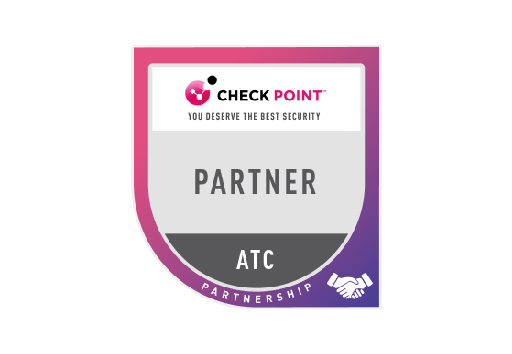title
Please take a moment to fill out this form. We will get back to you as soon as possible.
All fields marked with an asterisk (*) are mandatory.
Check Point Certified VSX Specialist (CCVS)
Course Description
Overview
The Check Point Certified VSX Specialist course is intended to provide you with the theoretical knowledge and practical skills needed to deploy, manage, and troubleshoot the Check Point VSX environment.Objectives
- Deploy separate virtual systems on one physical security appliance.
- Distribute traffic load across multiple cluster members.
- Manage the operations and processing load of virtual systems.
- Troubleshoot VSX deployments, routing, and provisioning issues.
- Apply virtualization to consolidate and simplify security.
- Share virtual system traffic load to provide higher throughput, connection capacity, higher availability, and linear scalability.
- Customize security on each virtual system to protect against evolving network threats.
- Identify basic functions, components, and advantages of using VSX technology.
- Explain the VSX management infrastructure and how traffic flows within a VSX network.
- List the routing schemes and features available with VSX.
- Identify options for deploying VSX technology within various complex organizations.
- Explain how to install and configure VSX Gateways and Virtual Systems.
- Explain how to deploy additional VSX networking configurations that are required in a specific environment.
- List the differences between deploying physical Security Gateway Clusters and VSX Gateway Clusters.
- Describe how Virtual Systems Load Sharing works to enhance VSX network performance.
- Explain how to use the VSX Provisioning Tool to add and remove virtual devices.
- Explain how to employ tools to optimize resources allocated in a VSX environment.
- Identify various VSX command line tools commonly used to retrieve information and perform configuration changes.
- Explain how to use VSX utility commands to perform various maintenance tasks for the VSX environment.
- Explain how to troubleshoot and debug issues that occur in a VSX environment.
Audience
Prerequisites
-
Before taking this course, we strongly suggest that you have the following prerequisites:
Solid working knowledge of:
- Unix-based and/or Windows OS
- TCP/IP Networking
- Check Point API
- Check Point training/certification:
- Check Point Certified System Administrator (CCSA)
- Check Point Certified Security Expert (CCSE)
Topics
- VSX Overview
- Virtual System Installation and Configuration
- VSX Clustering
- Advanced VSX Features
- Troubleshooting VSX
- Configuring the VSX Environment
- Deploying a Virtual System with a Physical Interface
- Deploying a Virtual System with Bonded VLAN Interfaces
- Deploying a VSLS Cluster
- Maintaining the VSX Environment
- Using the CLI to Manage VSX
- Performance Tuning in VSX
- Troubleshooting VSX Issues
Related Courses
-
Security Administration R81.20 (CCSA)
CP-CCSA- Duration: 3
- Delivery Format: Classroom Training, Online Training
- Price: 3,000.00 USD
-
Certified Security Expert R81.20 (CCSE)
CP-CCSE- Duration: 3
- Delivery Format: Classroom Training, Online Training
- Price: 3,000.00 USD
Self-Paced Training Info
Learn at your own pace with anytime, anywhere training
- Same in-demand topics as instructor-led public and private classes.
- Standalone learning or supplemental reinforcement.
- e-Learning content varies by course and technology.
- View the Self-Paced version of this outline and what is included in the SPVC course.
- Learn more about e-Learning
Course Added To Shopping Cart
bla
bla
bla
bla
bla
bla
Self-Paced Training Terms & Conditions
Exam Terms & Conditions
Sorry, there are no classes that meet your criteria.
Please contact us to schedule a class.

STOP! Before You Leave
Save 0% on this course!
Take advantage of our online-only offer & save 0% on any course !
Promo Code skip0 will be applied to your registration
Purchase Information
title
Please take a moment to fill out this form. We will get back to you as soon as possible.
All fields marked with an asterisk (*) are mandatory.










